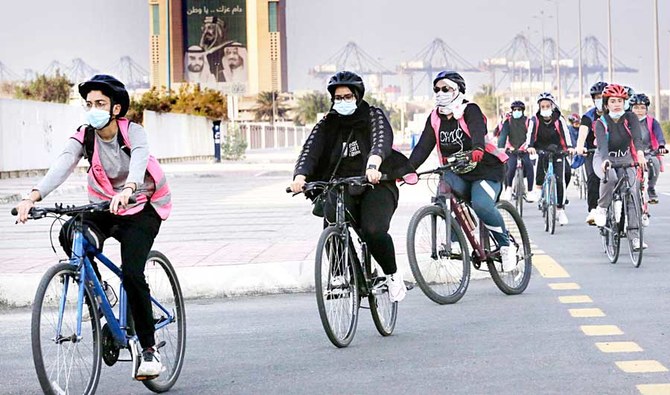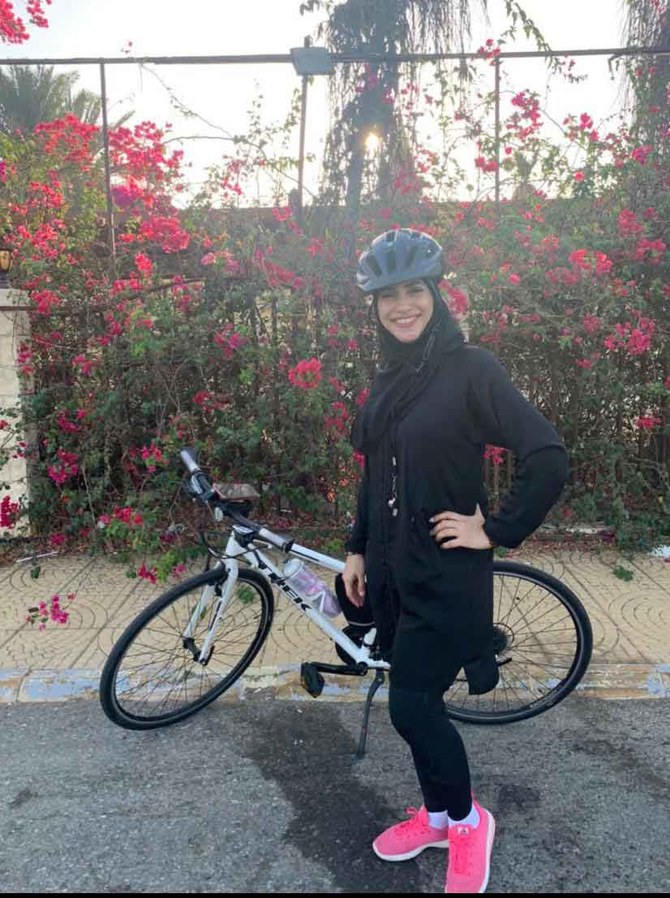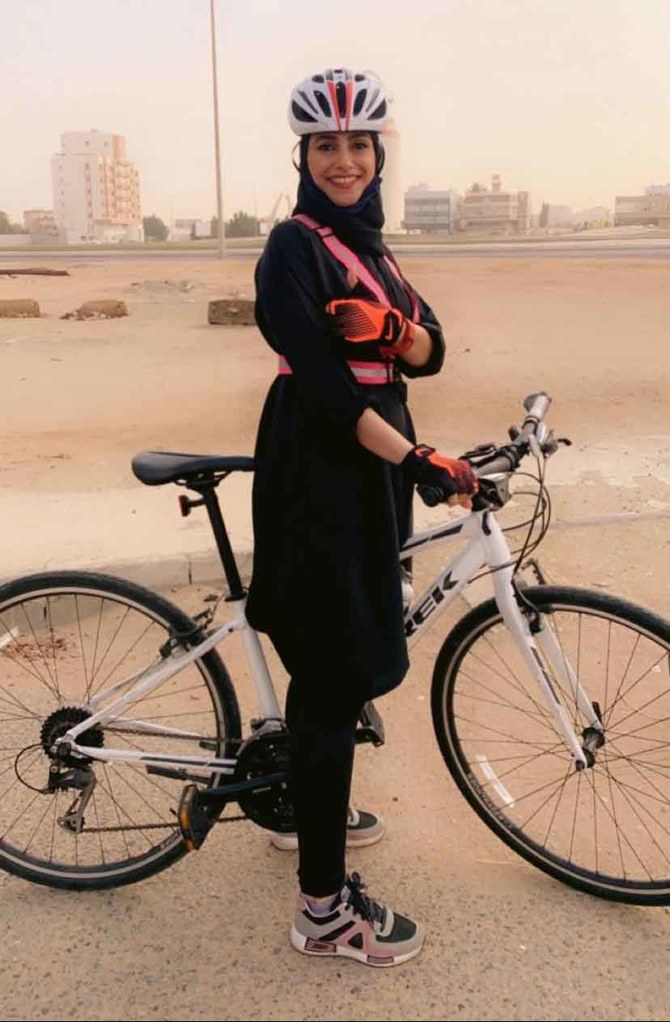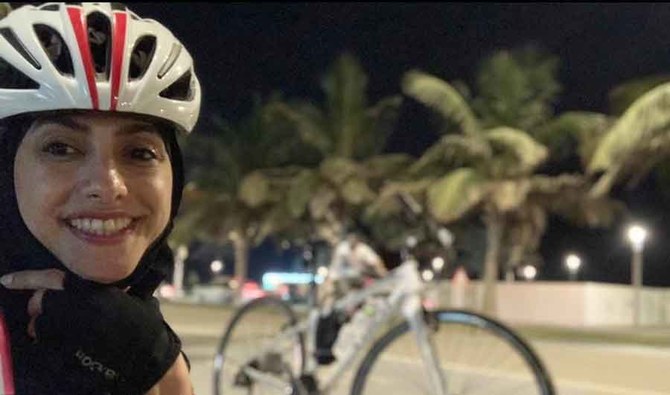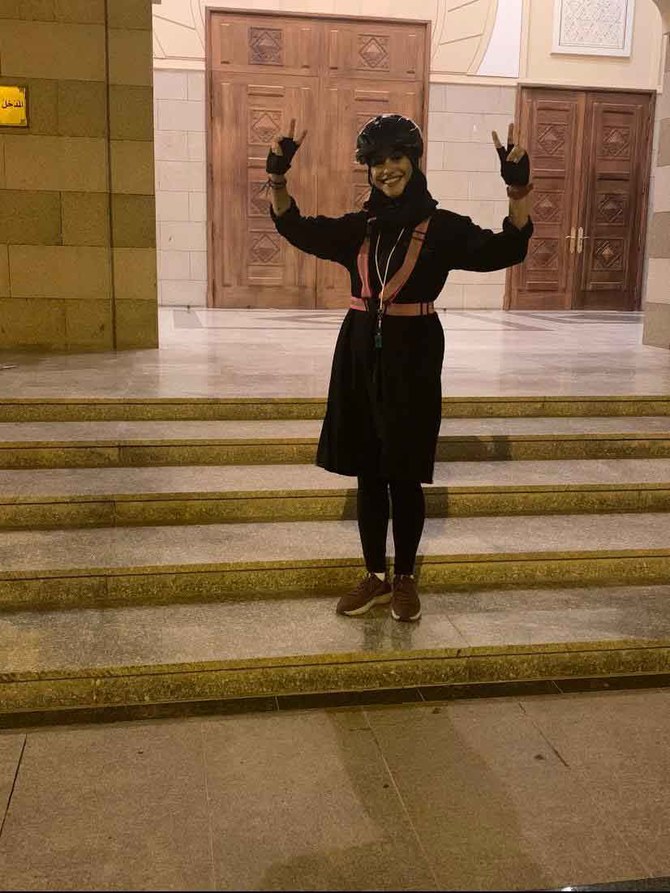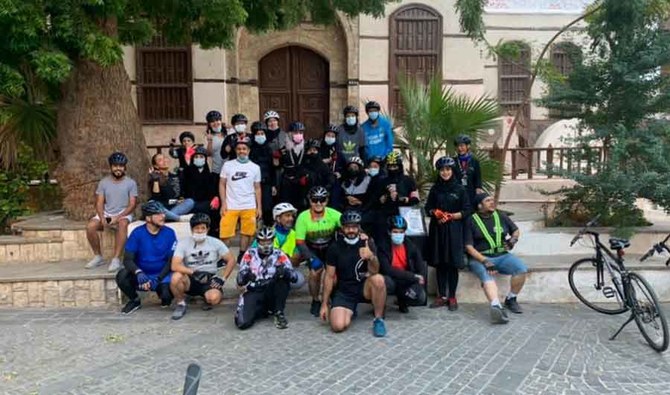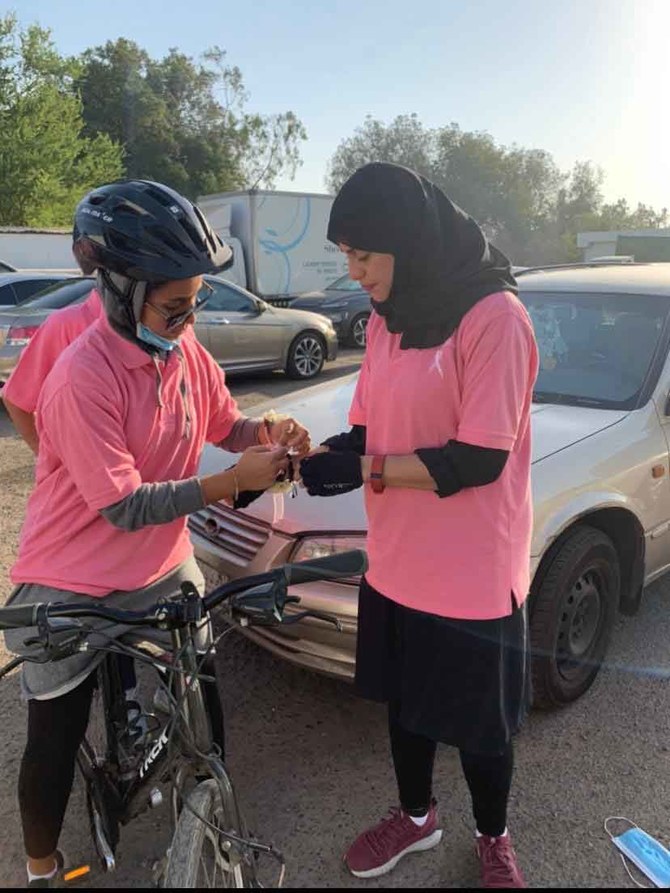MAKKAH: Nisreen Hakim and her friend Ashwaq Al-Hazmi are the founders of Jeddah Cycling Ladies, with club members traveling distances exceeding 100 km and taking part in races.
She and her friends travel from the waterfront, through the lakes to the historic Al-Balad district, and back to the starting point. Team members ride for 90 minutes every day.
As a young child, Hakim would attend basketball and volleyball matches, which instilled in her the love for sports.
“My father used to take me and my younger brother to see matches such as basketball and volleyball in the King Abdul Aziz Sports City in Makkah,” she told Arab News. “I used to listen to the sounds of the audience, their enthusiasm and encouragement. That atmosphere was ideal for me, and it sparked within me the passion for sports and games.”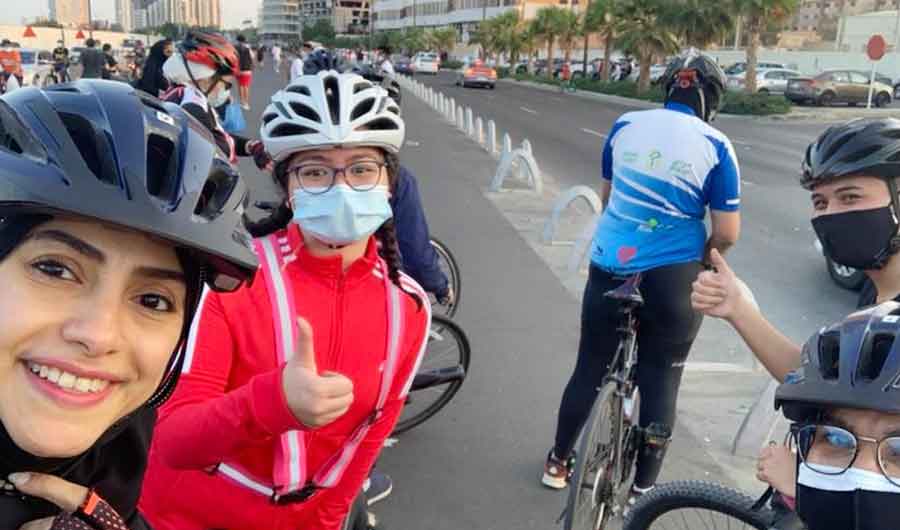
Hakim also went to Al-Wehda FC in Makkah, where she and her father were accompanied by well-known sports commentators such as Mohammed Ramadan and Zahid Qudsi. “I always saw them when they visited our house. Our home was like a sports center of all stripes and tendencies. That’s how I became attached to sports since childhood.”
Sport has shaped Hakim’s personality and self-esteem. Cycling symbolizes independence for her, and it has also had positive repercussions for her mental health.
Cycling has its professional methods that must be mastered and inspired by global experience.
Nisreen Hakim
“I was exposed to a family problem during that time. My psychological state was affected and, because I am a person who loves to move, I used to ride a bike alone. I did not have a bike at that time, so I used to rent one to ride around and practice cycling. What helped me the most is the presence of people in Jeddah who are open to cultures and arts due to the diversity of ethnicities and backgrounds.”
But her journey from being an amateur cyclist to a professional one has been tiring.

Members of the Jeddah Cycling Ladies during one of their training sessions.
“Cycling has its professional methods that must be mastered and inspired by global experience,” she added. “I feel that I am still at the beginning of the road, despite my hard training and the hundreds of kilometers that I travel daily, but it is a sport that requires patience, passion and love. Fortunately, for me, the period of my attachment to this sport coincided with allowing women to drive. This has helped me a lot in overcoming obstacles and moving to more professional and dynamic stages.”
HIGHLIGHTS
• The team meets at the Sheraton on the waterfront, with groups based on fitness levels.
• Members of the basic group ride for a distance of 20 km, while the distance for the medium fitness group is 25 km.
• The distance for high fitness members is 30 km. • Most of the training sessions are in the evening.
Hakim was practicing cycling as a hobby when she met Al-Hazmi and suggested establishing a team to Ashraf Bamatraf, the leader of the Jeddah cycling team. “He was very impressed with the idea and, together, we founded the Jeddah women’s cyclist club.”
She said she had benefited from global experiments in terms of preparation and training, although Saudi roads were not designed for cycling and did not have the sport in mind. Cyclists in the Kingdom were, however, able to stick to safety procedures such as wearing helmets, having lights and reflectors, and using the correct lanes.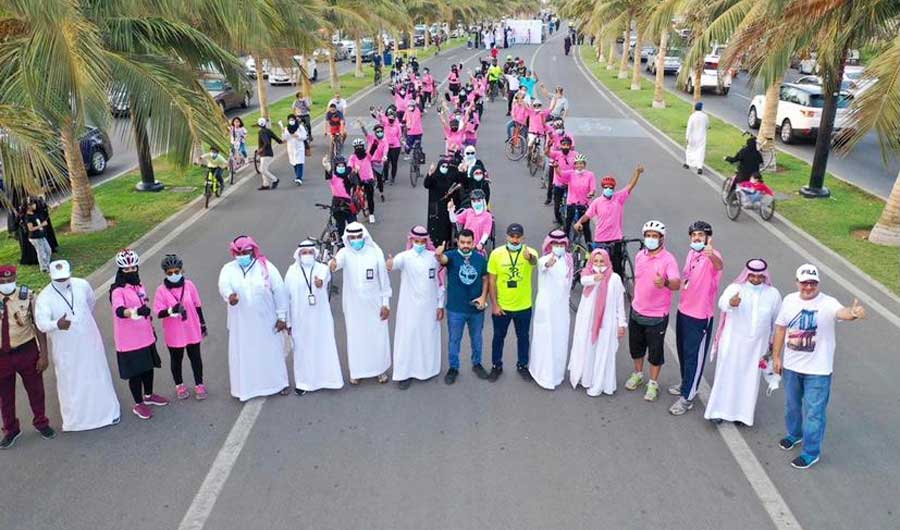
“Fortunately, girls can now practice it with our team, which has women captains to maintain some degree of privacy, in addition to adhering to all safety measures, the most important of which is wearing a helmet. Moreover, there are special training courses for girls who cannot ride bikes. They are taught how to maintain their balance and other basic skills.”
The team meets at the Sheraton on the waterfront, with groups based on fitness levels.
“Members of the basic group ride for a distance of 20 km, while the distance for the medium fitness group is 25 km. The distance for high fitness members is 30 km. Most of the training sessions are in the evening and we set out from the headquarters of the Jeddah cyclists to Obhur through the waterfront.”


